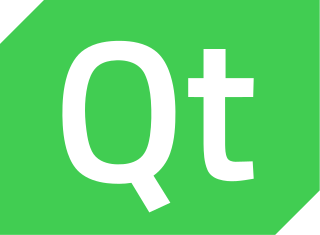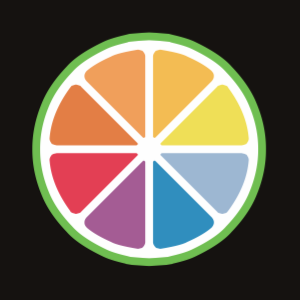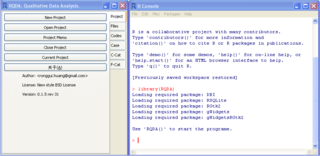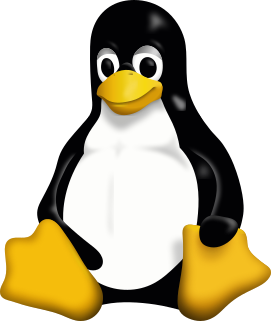Description and usage
HyperRESEARCH is used by qualitative researchers in areas such as health care, legal, sociology, anthropology, music, geography, geology, education, theology, philosophy, history, market research, focus group analysis and most other fields using qualitative research approaches.
HyperRESEARCH enables coding and retrieval of source material, theory building, and analyses of your data. With its multimedia capabilities, HyperRESEARCH allows you to work with text, graphics, audio, and video sources. HyperRESEARCH has been in use by qualitative researchers since it was first introduced in 1991. HyperRESEARCH is fully cross-platform. You can trade your study files and sources with other HyperRESEARCH users whether they use Mac OS X or Windows.
Features overview
- Easy-to-use interface: offers the same intuitive case-based interface on all supported platforms. It provides a turnkey solution by employing a built-in help system and several tutorials with step-by-step instructions.
- Flexible methodologies: supports Case-base or Source-based qualitative methodologies or combinations. With flexible organization of codes from any source to any case, support for code frequencies and other code statistics, HyperRESEARCH is well suited for mix-method approaches to qualitative research.
- Fully Cross-Platform: designed from the ground up to work well on Microsoft Windows and Apple's OS X. The HyperRESEARCH study file format and all of the various media types supported will work across operating systems.
- Multi-Media capabilities: allows you to work with text, graphics, audio, and video source material in many popular formats.

Qt is a free and open-source widget toolkit for creating graphical user interfaces as well as cross-platform applications that run on various software and hardware platforms such as Linux, Windows, macOS, Android or embedded systems with little or no change in the underlying codebase while still being a native application with native capabilities and speed. Qt is currently being developed by The Qt Company, a publicly listed company, and the Qt Project under open-source governance, involving individual developers and organizations working to advance Qt. Qt is available under both commercial licenses and open source GPL 2.0, GPL 3.0, and LGPL 3.0 licenses.
In computing, cross-platform software is computer software that is implemented on multiple computing platforms. Cross-platform software may be divided into two types; one requires individual building or compilation for each platform that it supports, and the other one can be directly run on any platform without special preparation, e.g., software written in an interpreted language or pre-compiled portable bytecode for which the interpreters or run-time packages are common or standard components of all platforms.
SuperCollider is an environment and programming language originally released in 1996 by James McCartney for real-time audio synthesis and algorithmic composition.
Virtual Studio Technology (VST) is an audio plug-in software interface that integrates software synthesizer and effects in digital audio workstations. VST and similar technologies use digital signal processing to simulate traditional recording studio hardware in software. Thousands of plugins exist, both commercial and freeware, and a large number of audio applications support VST under license from its creator, Steinberg.
A container or wrapper format is a metafile format whose specification describes how different elements of data and metadata coexist in a computer file.

Lazarus is a free cross-platform visual integrated development environment (IDE) for rapid application development (RAD) using the Free Pascal compiler.
A number of vector graphics editors exist for various platforms. Potential users of these editors will make a comparison of vector graphics editors based on factors such as the availability for the user's platform, the software license, the feature set, the merits of the user interface (UI) and the focus of the program. Some programs are more suitable for artistic work while others are better for technical drawings. Another important factor is the application's support of various vector and bitmap image formats for import and export.
Sakura HyperMedia Desktop is an open source desktop environment and knowledge navigator for Unix. It is written in scripting languages such as Python and Tcl, and therefore runs on a variety of platforms. The Sakura HyperMedia Desktop Project lists the main features as follows:

LinuxSampler is a music sampler under active development, aiming to provide a pure software audio sampler with professional grade features, comparable to both hardware and commercial Windows or Mac software samplers and to introduce new features not yet available by any other sampler. Much of LinuxSampler is free software but some, such as the back-end, is non-free, as commercial reuse is restricted.

JUCE is a partially open-source cross-platform C++ application framework, used for the development of desktop and mobile applications. JUCE is used in particular for its GUI and plug-ins libraries.
NVivo is a qualitative data analysis (QDA) computer software package produced by QSR International. It has been designed for qualitative researchers working with very rich text-based and/or multimedia information, where deep levels of analysis on small or large volumes of data are required.

RQDA is an R package for computer assisted qualitative data analysis or CAQDAS. It is installable from, and runs within, the R statistical software, but has a separate window running a graphical user interface. RQDA's approach allows for tight integration of the constructivist approach of qualitative research with quantitative data analysis which can increase the rigor, transparency and validity of qualitative research.
MAXQDA is a software program designed for computer-assisted qualitative and mixed methods data, text and multimedia analysis in academic, scientific, and business institutions. It is being developed and distributed by VERBI Software based in Berlin, Germany.
QSR International is a qualitative research software developer based in Melbourne, Australia, with offices in the United Kingdom, and the United States. QSR International is the developer of qualitative data analysis (QDA) software products, NVivo, NVivo Server, Interpris and XSight. These are designed to help qualitative researchers organize and analyze non-numerical or unstructured data.

mpv is media player software, based on MPlayer and mplayer2. It is free and open-source software released under a mix of licenses including GNU General Public License version 2 or later (GPLv2+), with parts under GNU Lesser Public License version 2.1 or later (LGPLv2.1+), and some optional parts under GNU General Public License version 3 (GPLv3).
MonoGame is a free C# framework used by game developers to make games for multiple platforms and other systems. It is also used to make Windows and Windows Phone games run on other systems. It supports iOS, Android, MacOS, tvOS, Linux, PlayStation 4, PlayStation Vita, Xbox One and Nintendo Switch. It implements the Microsoft XNA 4 application programming interface (API). It has been used for several games, including Bastion and Fez.

Quirkos is a CAQDAS software package for the qualitative analysis of text data, commonly used in social science. It provides a graphical interface in which the nodes or themes of analysis are represented by bubbles. It is designed primarily for new and non-academic users of qualitative data, to allow them to quickly learn the basics of qualitative data analysis. Although simpler to use, it lacks some of the features present in other commercial CAQDAS packages such as multimedia support. However, it has been proposed as a useful tool for lay and participant led analysis and is comparatively affordable. It is developed by Edinburgh, UK based Quirkos Software, and was first released in October 2014.









